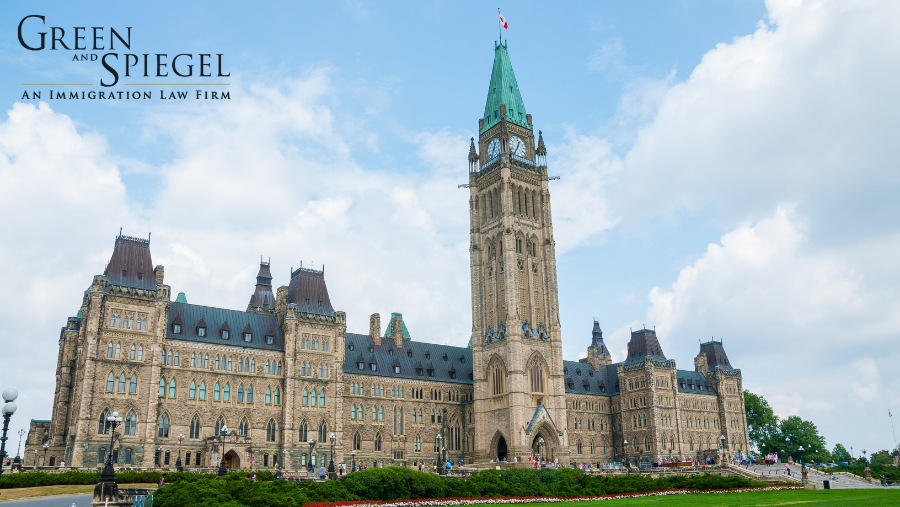Express Entry
Although candidates in the Express Entry pool who had a Comprehensive Ranking System (CRS) score of 438 were issued an Invitation to Apply (ITA) for permanent residence in the general round of invitations on January 30, 2019, candidates with scores in the 430 or even 440 range would not have fared so well for the remainder of 2019.
Indeed, for the rest of the year from January onwards, no one with a CRS score of 450 or less was issued an ITA.
August was the last month of 2019 in which candidates would have received an ITA with scores in the high 450 range. Since then, all other draws have required CRS scores of 460 or more. Despite the rising minimum scores, however, the Government still issued approximately 85,000 invitations in the past year.
Looking forward, the first draw for 2020 required candidates to have a minimum CRS score of 473 to be issued an ITA. Given the last few months and the first draw of this month, it would appear that the scores will remain high relative to prior years notwithstanding the growing number of hopeful candidates in the Express Entry pool waiting for their ITA.
If you wish to determine your eligibility to submit a profile in the Express Entry system, discover ways to increase your CRS score if you have already created your profile, and/or explore other ways to apply for permanent residence, please schedule an appointment with us.
Parent and Grandparent Sponsorship Program
Families in Canada eagerly waiting for the launch of the 2020 program will need to continue waiting for the Government to release more specifics about what the new program will look like. While the Government is almost certainly going to make changes to the way in which the program operated in 2019, when the quota was filled in under ten minutes on a first-come-first served basis, it remains unclear to what extent the program will be changed. More details are expected from the Government within the next few weeks when Ministerial Instructions are issued.
It is certain, however, with over 100,000 Canadian citizens or permanent residents having applied in prior years, that demand for spots in the program to sponsor parents or grandparents will be extremely competitive.
For further information, click here for a more in-depth perspective on the anticipated program. Alternatively, should you wish to discuss the potential eligibility requirements for the 2020 program or also explore other temporary resident options to bring your loved ones to Canada, such as applications for a Temporary Resident Visa or Super Visa, do not hesitate to contact Green and Spiegel LLP to schedule your consultation.
New Option For Out-of-Status Construction Workers in the Greater Toronto Area
On July 4, 2019, the Government announced a Temporary Public Policy for Out-of-Status Construction Workers in the Greater Toronto Area. The pilot program recognizes the economic contribution of long-term resident construction workers and will provide a direct pathway for 500 of them to apply for Canadian permanent resident status.
The public policy takes effect on January 2, 2020, and will end on January 1, 2022, or once 500 principal applicants (plus their family members) have been granted permanent residence status, whichever comes first. To be eligible, among other criteria, the out-of-status worker must have legally entered Canada as a temporary resident and/or received authorization to work in the construction industry. The worker must also have at least one family member who is living in Canada as a Canadian citizen or permanent resident, or have a spouse, common-law partner or child in Canada.
If you are an out-of-status construction worker who is currently working in the construction industry, and you are wondering about your eligibility under this program, please contact us to schedule your consultation.
Inside Canada Biometrics
As of December 3, 2019, the biometrics collection program requires foreign nationals applying from within Canada for temporary or permanent residence, or to extend or renew their visitor visa, work permit, or study permit, to provide their fingerprints and have their photos taken. There are approximately 58 Service Canada locations across the country to facilitate the collection of biometrics.
In July 2018, the requirement to provide biometrics was first introduced as a requirement for some foreign nationals applying to enter Canada from overseas. It was slowly thereafter phased in to become a requirement for all foreign nationals applying from overseas for temporary or permanent residence.
New Options for Caregivers
According to the Government, two new programs were designed specifically to give caregivers a clear pathway to obtain Canadian permanent residence status and resolve underlying concerns with the pre-existing programs.
The two programs are the Home Child-Care Provider and Home Support Worker pilot programs, which opened for applications on June 18, 2019. Some of the most welcome changes in the new pilots include occupation specific work permits, rather than employer specific work permits, to address concerns about vulnerability, and the fact that caregivers may request open work permits for their spouses and study permits for their children. Moreover, a Labour Market Impact Assessment is not required.
An interim pathway for caregivers was also launched first from March 4 until June 4, 2019, and then from July 8, 2019, for another three months. According to the Government, the purpose of the interim pathway was to support caregivers who do not meet the requirements of the previous caregiver programs that closed at the end of 2019.
If you are wondering if you are eligible for any of the new caregiver options, do not hesitate to contact Green and Spiegel LLP to schedule your consultation.
Enhanced Leniency for Post-Graduate Work Permit Applications
The beginning of 2019 ushered in significant policy changes for foreign nationals who submit an application for a Post-Graduate Work Permit Program (PGWP) after they complete their studies in Canada.
Generally speaking, the PGWP program has allowed foreign nationals who have graduated from certain Canadian post-secondary schools to subsequently obtain an open work permit and gain Canadian work experience, which is in most cases necessary for the foreign nationals to apply for permanent residence.
On February 14, 2019, the Government announced changes to the PGWP program. Most significantly, students now have an extended timeline to submit their applications for a PGWP: the previous deadline to submit the application has been extended from 90 days to 180 days from the first of the date that the student’s final marks are issued or the date formal written notification of program completion is received. Also, students at the time of applying no longer necessarily need to hold valid study permits and the definition of what constitutes a break from studies has been broadened.
For a more detailed analysis of the PGWP program changes, please visit our website here. You can also schedule a consultation with our office if you any have questions about the PGWP program.





